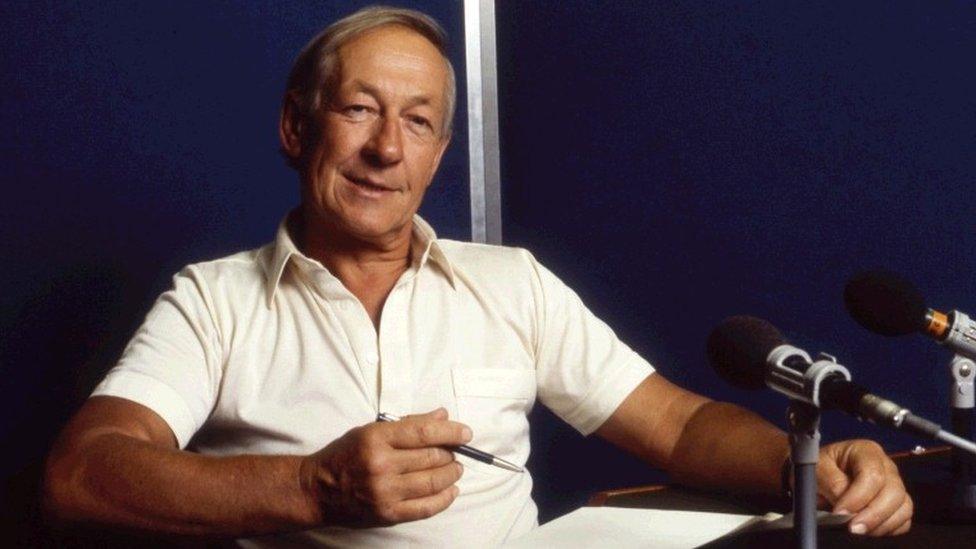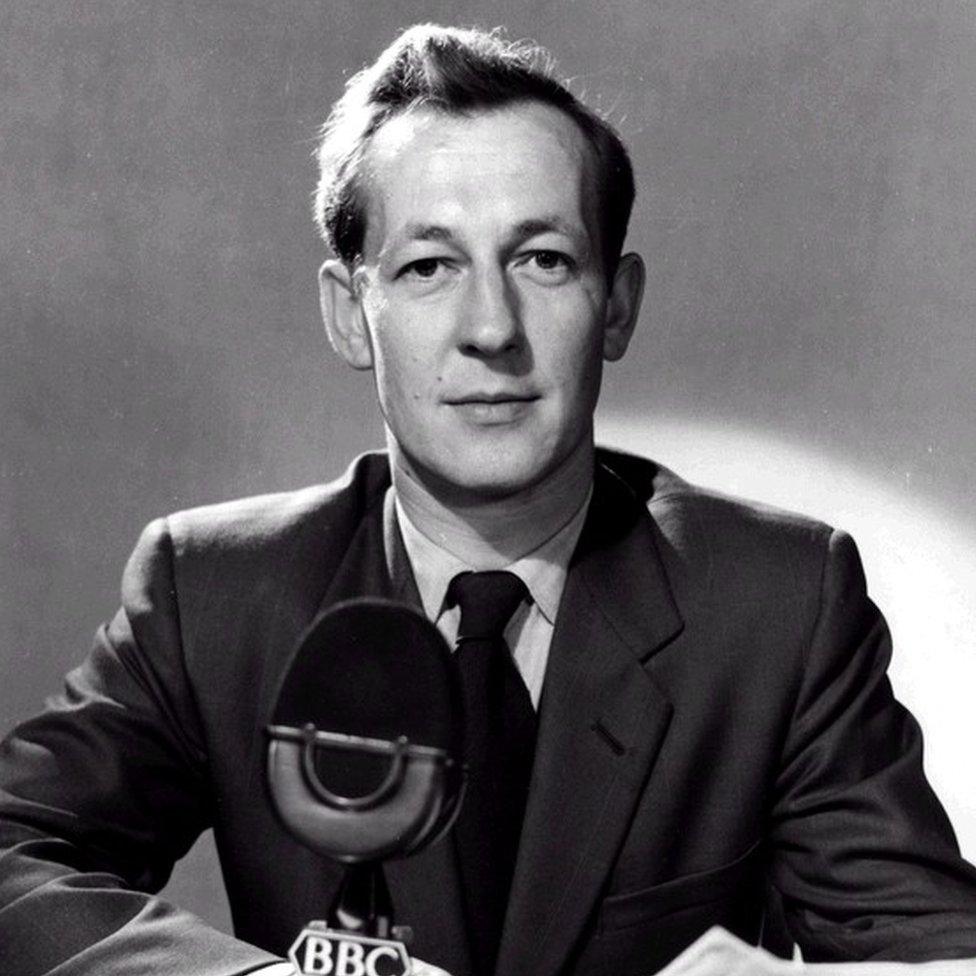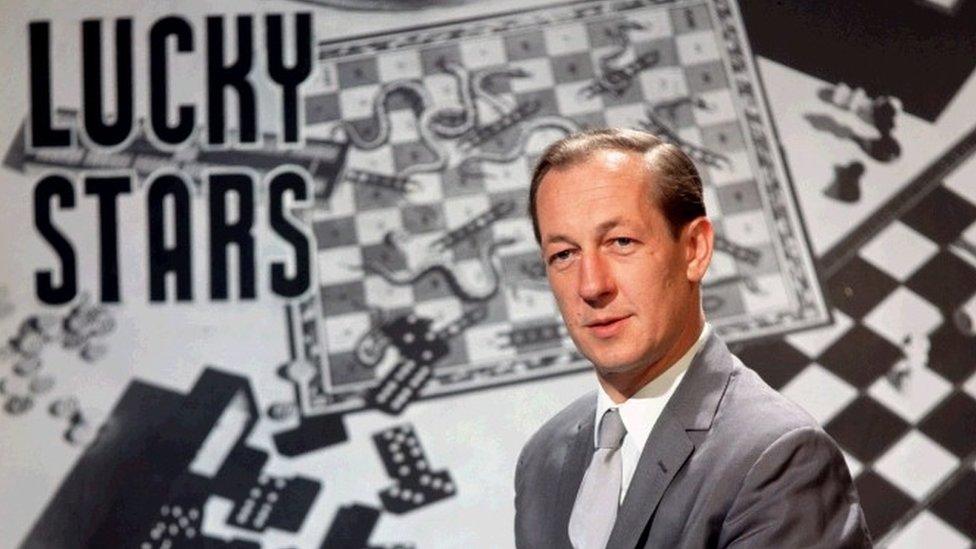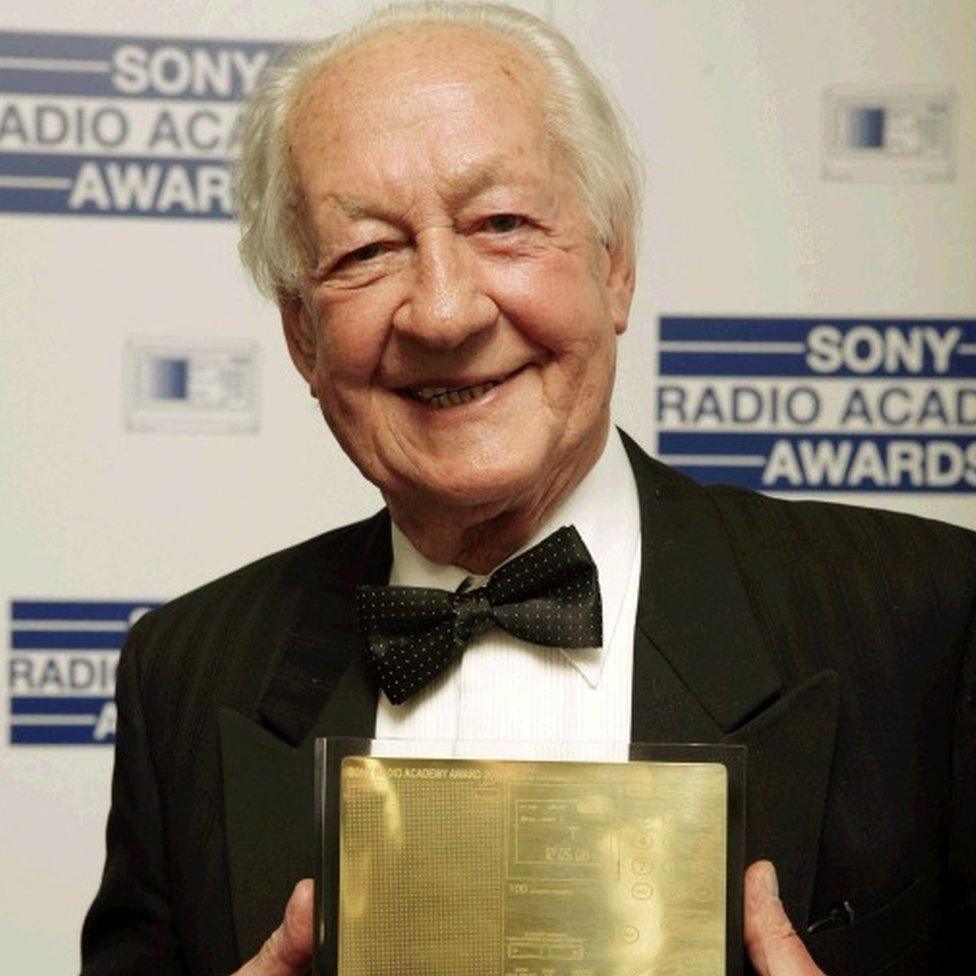Obituary: Brian Matthew
- Published

Brian Matthew's career spanned 60 years of popular music.
He began broadcasting in the days of skiffle and was still at the microphone in the second decade of the 21st Century.
Many of the most enduring acts in pop history kick-started their careers on one of his many radio shows.
And, as presenter of Thank Your Lucky Stars, he introduced the Beatles and the Rolling Stones to a television audience.
Brian Matthew was born in Coventry on 17 September 1928 into a musical family. His mother sang professionally while his father was the conductor of the local silver band.
His radio career began when he was serving with the Army in post-war Germany where he worked as a programme presenter and newsreader on the British Forces Network, which broadcast to troops serving abroad.
He also developed something of a talent for acting and on leaving the Army, he went to Rada, securing a number of roles with the Old Vic Company. It was there that he met his wife, Pamela, whom he married in 1951.

His BBC career began when radio announcers were expected to dress for the occasion
There was a short time with Radio Netherlands Worldwide, the Dutch English language service, before he returned to the UK and took up a job as a milkman in his home city.
Matthew was back behind a microphone in 1954 when the BBC recruited him as an announcer and producer. One of the programmes he hosted was Saturday Skiffle Club, later renamed Saturday Club, which went out on the BBC Light Programme on Saturday mornings.
The BBC virtually ignored the boom in popular music in the 1950s and Matthew's show quickly found an appreciative teenage audience.
Skiffle, which was based on acoustic guitars and a variety of home-made instruments including tea chests and washboards, had a fleeting moment of fame with artists such as Lonnie Donegan, before it was swept away by rock and roll.
Passed into folklore
With bands such as Bill Hailey and the Comets from the US, and up-and-coming British performers like Adam Faith and the Shadows, the demand for pop music grew and Matthew's show was extended to two hours from the original 30 minutes.
The programme brought a British audience the music of a host of US stars, including Gene Vincent, the Everly Brothers and Jerry Lee Lewis alongside emerging British talent. In later years the show would highlight performances by The Beatles, The Searchers and Manfred Mann.
In 1960, the BBC launched a Sunday morning show called Easy Beat and Matthew was drafted in to present that as well. By now he was the authentic voice of the pop music explosion that came to dominate the 1960s.

Thank Your Lucky Stars allowed his fans to put a face to the voice
A year later his audience finally put a face to the voice when he was recruited to present ITV's new pop show, Thank Your Lucky Stars. It featured bands such as The Beatles and the Rolling Stones miming to their latest single. A guest DJ and three teenagers would also review new releases. This latter section of the show introduced Janice Nicholls whose "Oi'll give it foive" delivered in her strong Black Country accent, passed into folklore.
By the mid-1960s, the BBC's pop offering was looking rather dated alongside the competition from a fleet of pirate radio ships scattered around the coast of the UK. When the BBC finally caught up in 1967, with the launch of Radio 1, Easy Beat was dropped. Meanwhile, Matthew, who was approaching his 40s, found himself dropped from Saturday Club in favour of former pirate DJ, Keith Skues.
In 1972 Matthew narrated a 12-part documentary for Radio 2 entitled The Beatles Story which was later repeated on 6 Music.
Matthew later appeared on Radio 1 presenting My Top 12, a programme on which a guest star would be interviewed about his or her career and select 12 favourite tracks to make up an imaginary album.
Backlash
Guests reflected the whole range of popular music and included Brian Ferry, Keith Emerson, Joni Mitchell and Neil Diamond. Matthew also presented a regular easy listening show on weekday evenings for radio and, in 1978, began hosting the Radio 2 arts show Round Midnight.
In 1990, he took over Sounds of the 60s, the Radio 2 show with which he would always be indelibly linked. It gained a huge and appreciative audience of people who had been teenagers in the 1960s, as well as their children, tuning in to hear the opening bars of Foot Tapper, the Shadows recording that was the programme's theme tune.
In 2008, Matthew won a Sony Gold Award "in recognition of a truly outstanding contribution to UK radio".

There was a gold Sony Award for his outstanding contribution to broadcasting
Apart from a couple of breaks because of illness, Matthew continued to present the show until, in January 2017, the BBC announced that he was standing down because of ill-health and that his place would be taken by Tony Blackburn.
The Corporation found itself on the end of a backlash from loyal listeners and from Matthew himself, who attacked the BBC's handling of the matter.
"I was ready and willing and able to go back," he said, "and they just said they are going to put the programme in the hands of other people.
"I enjoyed doing the show very much. I did it for 25 years. I feel very disconcerted, I must say."
He presented his final proper show on 25 February 2017 although a repeat of an earlier programme, with new links, was broadcast on 6 March.
He signed off his last broadcast in typical style. "This is your old mate, Brian Matthew, saying that's your lot for this week. See you soon."